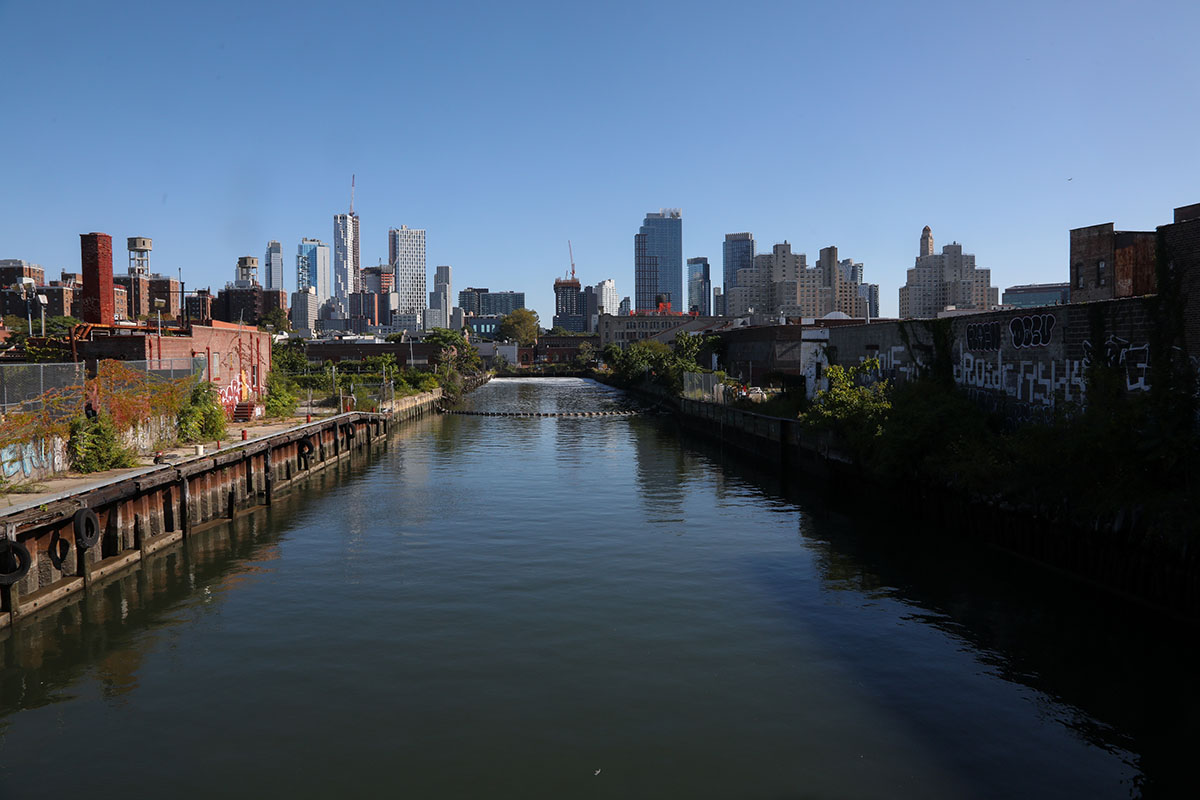
Gowanus Canal Conservancy
2022 – $15,000 Master Plan
2020 – $10,000 General Support
Gowanus Canal Conservancy (GCC) advocates and cares for ecologically sustainable parks and public spaces in the Gowanus Lowlands while empowering a community of stewards. Since 2006, GCC has led volunteer projects focused on garden and street tree stewardship; educated and activated community stewards, volunteers, and students in urban water issues; equipped the community to build and advocate for a healthy waterway and environmentally resilient neighborhood; and worked with agencies, elected officials, and the community to advocate for, build, and maintain innovative green infrastructure in the Gowanus Watershed.
As the Gowanus neighborhood is facing rapid change from the Gowanus Canal Superfund clean-up, City-proposed Gowanus Neighborhood Rezoning, and preparations for sea level rise, GCC has established itself as the guiding community voice for innovative green infrastructure design in Gowanus’ public realm to create a more sustainable and livable neighborhood.
The Gowanus Lowlands Master Plan is a community-based vision for a public realm formed from a network of parks, publicly-accessible waterfront esplanades, and tree-lined corridors centered on the Gowanus Canal. The Gowanus Lowlands builds upon multiple planning and clean-up processes to provide the community with accessible green space, cultural resources, and recreational amenities while serving multiple functions through increased flood resilience, mitigation of the impacts of the urban heat island effect, creation of habitat, stormwater management, and reduction in pressure on the sewer system.
GCC empowers local stakeholders in stewardship of their local landscapes through ongoing, in-person stewardship events and opportunities. Through the Gowanus Tree Network, GCC recruits, trains, and supports local residents and business owners in the Gowanus Lowlands as they provide long term tree stewardship on their blocks. GCC distributes tools, compost, and plants and provides support for volunteers and residential gardeners living in nearby NYCHA public housing. Additional volunteers are engaged in GCC’s Volunteer Program in propagating and planting native plants, and in removing weeds and litter from street trees and bioswales throughout the neighborhood. These stewardship efforts help to reduce combined sewer overflow (CSO) and urban heat island impacts, while supporting livable and beautiful spaces for community members to enjoy. Temporary COVID adaptations have been developed to ensure the safety of all environmental stewards.
The Lowlands Nursery grows healthy native, urban-adapted plants, with a focus on local ecotypes in order to facilitate the planting of native plants in the Gowanus Lowlands. These native plants are distributed throughout Gowanus, and can be found at the Salt Lot, in nearby tree pits and neighborhood gardens, and in the yards of community members, organizations, and schools. Volunteers help plant these native plants during in-person volunteer events. Plants can also be purchased at the Salt Lot during plant sale events or by appointment. Temporary modifications have been made, allowing customers to purchase plants, soil, and compost online, which they can then pick up at a predetermined time.
Gowanus Green Team employs youth, primarily recruited from local NYCHA public housing, in order to better understand local environmental issues and build skills and knowledge for environmental careers. Apprentices participate in classroom lessons, field work and training, and trips to parks and restoration areas in Gowanus and around NYC. Apprentices develop physical skills, including gardening, infrastructure maintenance, and plant identification; teamwork and communication skills; and knowledge about urban environmental issues facing our city. Last season, GCC’s apprenticeship program took place with stringent physical distancing and safety measures in place. Eight youth living in neighborhood NYCHA housing logged 884 hours over three months and developed stewardship skills and provided horticultural maintenance in the Lowlands Nursery, rain gardens, and street trees. The program included weekly virtual sessions focused on neighborhood ecology, green infrastructure, horticultural techniques, and job skills.
The Urban Ecology, Gowanus Blue Schools, and Community Science education programs provide supplementary educational content tailored to an audience of students, teachers, and families in the surrounding watershed and EJ areas. These programs educate, engage, and inspire those who are most directly impacted by the environmental issues in Gowanus. They are equipped with the tools they need to make positive change. The Urban Ecology Program engages K-5 students in the importance of environmental stewardship, green infrastructure as a solution to pollution, and native plant horticulture, as they propagate numerous native plant species on site. The Gowanus Blue Schools Program teaches students in grades 5-12 to imagine and develop green infrastructure design proposals to help reduce CSO impacts on their school campuses. The Community Science Program equips students in grades 5-12 with an understanding of water quality health and data collection, allowing students to assess a variety of water quality parameters through on-site testing. Each program has been temporarily modified into a remote learning model, featuring virtual field trips, to accommodate as many students as possible during this challenging time.






